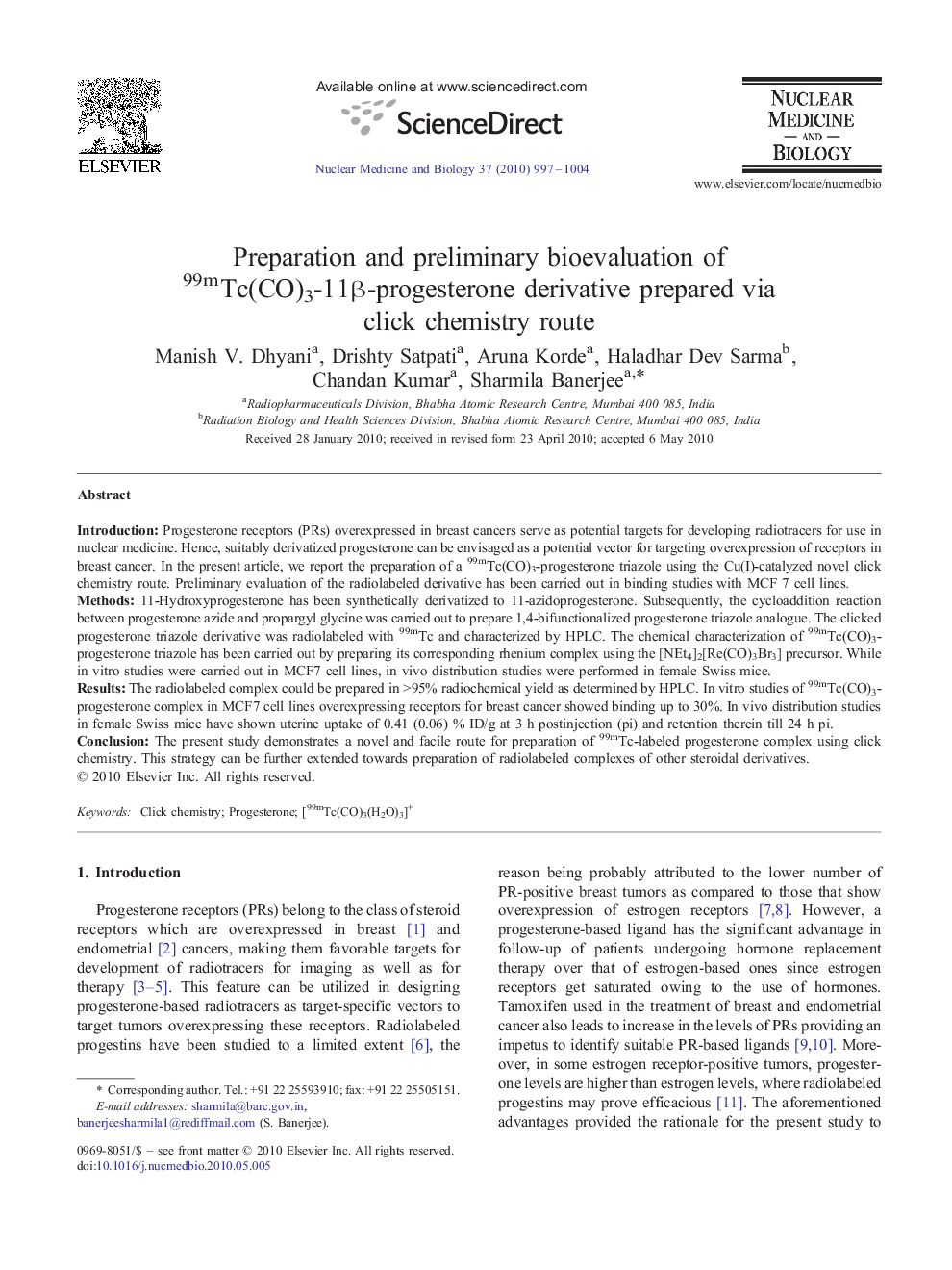| Article ID | Journal | Published Year | Pages | File Type |
|---|---|---|---|---|
| 2154400 | Nuclear Medicine and Biology | 2010 | 8 Pages |
IntroductionProgesterone receptors (PRs) overexpressed in breast cancers serve as potential targets for developing radiotracers for use in nuclear medicine. Hence, suitably derivatized progesterone can be envisaged as a potential vector for targeting overexpression of receptors in breast cancer. In the present article, we report the preparation of a 99mTc(CO)3-progesterone triazole using the Cu(I)-catalyzed novel click chemistry route. Preliminary evaluation of the radiolabeled derivative has been carried out in binding studies with MCF 7 cell lines.Methods11-Hydroxyprogesterone has been synthetically derivatized to 11-azidoprogesterone. Subsequently, the cycloaddition reaction between progesterone azide and propargyl glycine was carried out to prepare 1,4-bifunctionalized progesterone triazole analogue. The clicked progesterone triazole derivative was radiolabeled with 99mTc and characterized by HPLC. The chemical characterization of 99mTc(CO)3-progesterone triazole has been carried out by preparing its corresponding rhenium complex using the [NEt4]2[Re(CO)3Br3] precursor. While in vitro studies were carried out in MCF7 cell lines, in vivo distribution studies were performed in female Swiss mice.ResultsThe radiolabeled complex could be prepared in >95% radiochemical yield as determined by HPLC. In vitro studies of 99mTc(CO)3-progesterone complex in MCF7 cell lines overexpressing receptors for breast cancer showed binding up to 30%. In vivo distribution studies in female Swiss mice have shown uterine uptake of 0.41 (0.06) % ID/g at 3 h postinjection (pi) and retention therein till 24 h pi.ConclusionThe present study demonstrates a novel and facile route for preparation of 99mTc-labeled progesterone complex using click chemistry. This strategy can be further extended towards preparation of radiolabeled complexes of other steroidal derivatives.
